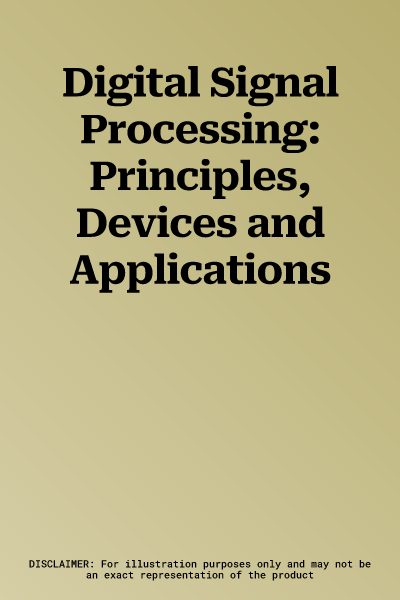Recent progress in the design and production of digital signal
processing (DSP) devices has provided significant new opportunities to
workers in the already extensive field of signal processing. It is now
possible to contemplate the use of DSP techniques in cost-sensitive wide
bandwidth applications, thereby making more effective use of the large
body of available signal processing knowledge. Digital signal
processing, long the province of telecommunications is, in both research
and applications contexts, of growing importance in fields of medical
signal analysis, industrial control (particularly robotics), in the
analysis and synthesis of speech and in both audio and video
entertainment systems. The growing demand for engineering skills in
these areas has led to the writing of this book and the presentation of
the material of the book at an lEE-sponsored Vacation School at the
University of Leicester.
This book is different from others in the field in that it not only
presents the fundamentals of DSP ranging from data conversion to
z-transforms and spectral analysis, extending this into the areas of
digital filtering and control, but also gives significant detail of the
new devices themselves and how to use them. In addition to presenting
the basic theory and describing the devices and how to design with them,
the material is consolidated by extensive use of real examples in
specific case studies.
The book is directed at readers with first degree level training in
engineering, physical sciences or mathematics and with some
understanding of electronics, and is appropriate for design engineers in
industry, users of DSP devices in scientific research and in all
technical development areas associated with the processing of signals
for display, storage, transmission or control.

